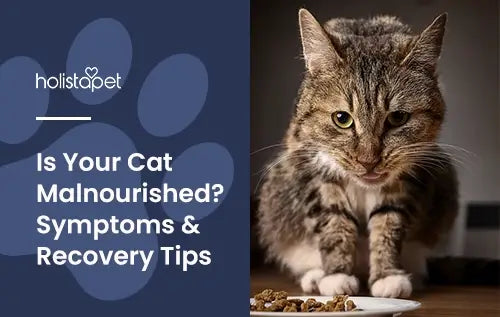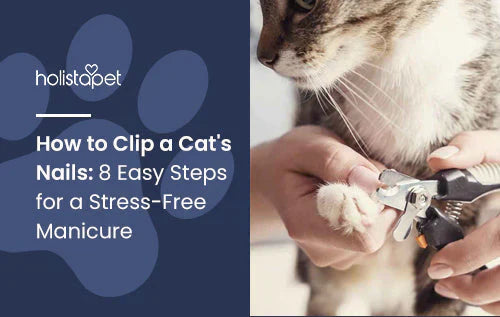A restless cat can be quite a puzzle to solve. It's up to you to piece together the reasons behind your cat's behavior. Whether it's pacing around the house, increased vocalization, or potty accidents, getting down to the root cause is key.
Every pet parent should know why cats experience restlessness and behavioral struggles. By pairing the right information with a little patience, you can help soothe your cat's fears and create a peaceful home environment. Keep scrolling to discover how to better connect with your feline companion!
What Is Restlessness in Cats and Is It Common?
Restlessness in cats is when a cat seems unable to relax or stay calm. This behavior can manifest in different ways. Common signs include increased activity, pacing, or constant meowing.
Such cat behavior may seem unusual, but it's actually common. It's a normal part of the feline experience, as many cats face uneasiness at some point. Understanding that restlessness is a common emotional response to certain situations can help cat owners better help their pets.
Importance of Addressing Cat Restlessness
Restlessness can have a big impact on a cat's health and behavior. Constant uneasiness can lead to serious behavior problems and health conditions down the line.
Most cats experience disrupted sleeping patterns when restless. This lack of sleep can lead to increased fatigue and irritability during the day. It can also weaken their immune systems, making them more prone to medical problems.
Effects on cat behavior include aggressive or destructive behaviors. Restless cats may scratch furniture or go potty outside their litter boxes. These unwanted changes not only affect your kitty's quality of life but can also create tension at home.

Signs That a Cat Is Restless
Pet parents need to learn to spot the symptoms of feline restlessness. From subtle signs to more obvious symptoms, you must keep a keen eye on your furry friend. Remember these indicators:
- Excessive Vocalization. A restless cat may vocalize excessively, meowing, yowling, or crying more than usual.
- Over-Grooming. Excessive licking or grooming can cause bald spots or irritated skin.
- Pacing or Circling. An uneasy kitty may walk back and forth or circle in the same area.
- Hiding. Your cat might hide more often to escape what's bothering them.
- Increased Aggression or Irritability. Sudden aggression towards family members or other pets can mean restlessness.
- Escape Attempts. A cat trying to escape may be feeling restless or confined.
- Scratching Furniture. Increased scratching can be a way for cats to release their pent-up energy or anxiety.
- House Soiling. Changes in litter box habits, such as urinating outside the box, can point to restlessness.
- Change in Eating Habits. A restless pet might eat less, leading to weight reduction.
- Dilated Pupils (Mydriasis). Wide, dilated pupils can mean fear or agitation.
- Flattened Ears. Ears held back against the head often indicate discomfort or stress.
- Stiffened Body Posture. A tense, stiff body posture can mean a cat is on high alert.
Most Common Reasons Cats Become Restless
You may wonder what's making your cat restless. Cat uneasiness can arise from various sources. Common causes include changes in their environment, separation anxiety, or underlying medical conditions. These factors can affect your cat's behavior and imply they're feeling insecure or uncomfortable.
Separation Anxiety
Cats get a bad rap for being aloof, but they're actually social animals. Many form strong bonds with their owners, leading to distress during separation. This type of cat anxiety can cause excessive vocalization, destructive scratching, and escape attempts.
Young cats and those sensitive to changes are prone to separation anxiety. To help soothe them, provide interactive toys and items that carry your scent. Spending more quality time together will help, too.
Changes in a Cat's Environment or Daily Routine
Cats are creatures of habit. Even minor changes like moving furniture or switching feeding times can frustrate them. This discomfort may lead to behaviors like pacing, hiding, or increased aggression.
To decrease your pet's distress, try to make changes slowly. Sensitive cats might take several weeks to adjust. In the meantime, provide your furry buddy with familiar objects or routines to help them feel secure.
Boredom
Cats need mental and physical stimulation to stay content. A lack of engaging activities can lead to frustration. Bored cats may start pacing, vocalizing, or engaging in destructive behaviors.
Battle boredom by providing your feline friend with plenty of enrichment. Cat toys, trees, and puzzle feeders can help keep their minds and bodies active. Regular playtime with you is also crucial.

Overstimulation
While cats enjoy play and attention, too much can overwhelm them. Extended play sessions, excessive petting, or busy environments can cause agitation and restlessness. Signs of over-stimulation include sudden aggressive behavior and attempts to escape or hide.
To prevent overstimulation, provide your cat with breaks during play. Also, create quiet, safe spaces where they can retreat and relax when they feel overwhelmed.
Estrus (In Heat)/Tomcatting
Restlessness can arise when a female cat is in estrus (also known as being in heat) or when a male cat is tomcatting. During this period, cats may vocalize a lot, pace around, or try to escape in search of a mate. This is their natural instinct at work.
Other physical signs include rolling on the ground or raising the hindquarters. Cats may also become either clingy or irritable. If the behavior persists, spaying or neutering is usually recommended. These procedures can help prevent stressful periods and reduce the risk of related health problems.
Fears and Phobias
Loud noises, unfamiliar people or animals, and sudden changes can threaten a cat. This fear can manifest as pacing, hiding, or excessively meowing. For some cats, these fears can be deeply ingrained. In such cases, a vet may recommend anti-anxiety medication.
To help your distressed cat, identify and reduce exposure to their stressors. Also, create safe, quiet spaces where your cat can retreat when frightened to help manage their fears.
Aches or Discomfort
An uncomfortable cat may have difficulty settling. They may pace around, keep shifting, or avoid rest altogether. They may also show a stiff body posture, avoid physical contact, or refuse to eat. Common causes include joint swelling, dental disease, or internal issues that might not be obvious.
If you notice these symptoms, talk to your vet. They're the best person to help identify and address the underlying cause of your cat's discomfort.
Age-Related Health Issues
Cognitive decline, arthritis, or sensory impairments can make it hard for older cats to relax. For example, cognitive decline or feline dementia can cause confusion and disorientation. These can then lead to increased nighttime activity or pacing.
To help manage age-related issues, observe your aging cat for signs of restlessness. Then, consult your vet for the appropriate solutions. Also, provide a comfortable environment and keep a routine to support your kitty's well-being.
Underlying Medical Conditions
Issues such as hyperthyroidism, dental disease, or urinary tract infections can cause discomfort. They can lead to hyperactivity or changes in behavior. These medical conditions might also come with other symptoms. Think weight loss, changes in appetite, or unusual litter box habits.
Restlessness due to medical issues often requires prompt veterinary attention. Track any subtle changes in your cat's behavior and report them to your vet for proper diagnosis and treatment.

Tips for Addressing Your Cat's Restlessness
Paying close attention to your cat's needs can help them feel more secure and relaxed. Try these approaches:
- Maintain A Consistent Routine and Environment. Cats thrive on routine. Consistent feeding times, playtime, and other daily activities can help reduce restlessness.
- Spend Time With Your Cat. Quality time can help ease feelings of loneliness.
- Provide Mental and Physical Stimulation. Interactive toys, scratching posts, and puzzle feeders can help keep your cat entertained.
- Try CBD for Cats. CBD (cannabidiol) promotes calm and relaxation in our cat companions. It interacts with the feline endocannabinoid system (ECS), which plays a role in regulating sleep, mood, and stress response. Cat owners have reported positive results from using quality CBD cat products for their skittish pets.
- At HolistaPet, we have quality CBD products for your cat. Depending on your kitty's preference, you can try our CBD Oil, CBD Cat Treats, or CBD Calming Chews for Cats. We use broad-spectrum CBD, which doesn't include THC (tetrahydrocannabinol), the mind-altering compound in cannabis. Your furry friend can sit back and relax without the risk of unwanted effects.
- Remove or Manage Stressors. Identify and manage any stressors in your cat's environment, such as loud noises or unfamiliar animals.
- Create Safe Spaces Around the House. Assign quiet areas where your cat can retreat and feel safe whenever they need a break.
- Consult a Veterinary Behaviorist. A veterinary behaviorist can help address your cat's behavior if restlessness persists.
- Go for Regular Checkups. Regular vet visits can help detect any underlying medical problems early.
Restlessness in Cats - Frequently Asked Questions
Many pet parents wonder when to seek professional help, how to choose the best calming products, and what signs show their cat is improving. Addressing these concerns can help you better manage your pet's restlessness. In the next sections, we'll answer these FAQs in more detail.
When Should I Seek Veterinary Attention for My Restless Cat?
See your vet if your restless cat doesn't improve despite your efforts. You may notice other signs, such as significant weight reduction, changes in eating habits, vocalization, or house soiling. These worrying symptoms can point to underlying health problems.
If you notice the above symptoms or any other severe changes in your pet, consult your vet immediately. Early intervention can prevent more serious health conditions from developing.
How Do I Choose the Best Calming Product for My Cat?
First, consider your cat's specific needs and situation. Then, pick reliable brands like HolistaPet. We use only natural ingredients in our calming CBD cat products. All our offerings are also dairy-free, gluten-free, non-GMO, third-party lab-tested, and vet-approved.
Also, consider your cat's preferences. Some cats may respond well to oils, while others might prefer treats or chews. Consult your vet to ensure your chosen product is right for your pet.
How Long Does It Take to See Improvements in Restless Cats After Starting Treatment?
Improvements in cat behavior can often happen within a few days to a week. This is especially true if the restlessness is due to environmental factors or mild anxiety.
If the restlessness is due to an underlying medical condition, the treatment may take several weeks to take effect. Patience is key here. Monitor your pet's behavior to keep track of their progress.
What Are the Signs That My Cat Is Getting Better?
As your cat starts to improve, you'll notice several positive changes. Look for signs such as:
- Normal Sleeping Patterns
- Decreased Vocalization
- Less Pacing or Scratching
- Healthy Appetite
- Increased Playfulness and Interaction
- Generally Calm Demeanor
Browse All Article for Cat Care Here
Wrapping It Up - Restless Cat
Don't let restlessness dampen your cat's spirit. Now, you're equipped with the knowledge to help keep your pet feeling calm and satisfied. By being attentive and responsive, you can create a more harmonious home for both you and your feline friend.
Remember, HolistaPet offers calming CBD products to support your cat's relaxation. With the right approach, your kitty can enjoy a calmer, more balanced life.


 CBD Oil for Cats - Fast Acting
CBD Oil for Cats - Fast Acting
 CBD Cat Treats - Easy Dose
CBD Cat Treats - Easy Dose
 CBD Calming Chews for Cats - Highly Rated
CBD Calming Chews for Cats - Highly Rated
 CBG Oil for Dogs and Cats - Loved by Thousands
CBG Oil for Dogs and Cats - Loved by Thousands





Leave a comment
All comments are moderated before being published.
This site is protected by hCaptcha and the hCaptcha Privacy Policy and Terms of Service apply.